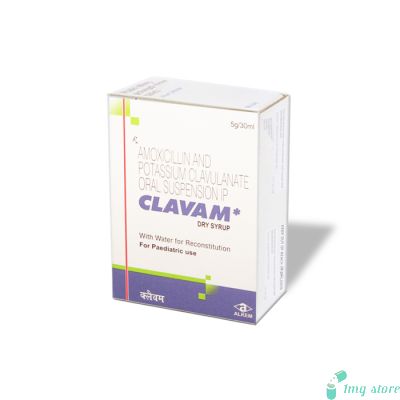Raxitid Tablet (Roxithromycin)
Roxithromycin, marketed as Raxitid, is an antibiotic medication commonly prescribed to treat various bacterial infections. It belongs to the macrolide class of antibiotics and works by inhibiting bacterial protein synthesis, thereby preventing the growth and spread of bacteria in the body.
Introduction of Raxitid Tablet (Roxithromycin):
Roxithromycin Tablet is an antibiotic medication that belongs to the macrolide class. It is widely used to treat various bacterial infections. Understanding its mechanism of action sheds light on how it effectively combats these infections.
Mechanism of Action:
Roxithromycin exerts its therapeutic effects by interfering with bacterial protein synthesis, a crucial process for the growth and survival of bacteria. The mechanism can be broken down into the following steps:
Binding to the Ribosome: When Roxithromycin is ingested, it enters the bloodstream and reaches the site of infection. Within the bacterial cell, it specifically targets the ribosome, a complex molecular structure responsible for assembling proteins.
Inhibition of Translocation: Roxithromycin binds to the 50S subunit of the bacterial ribosome. This binding prevents the ribosome from moving along the messenger RNA (mRNA) strand during protein synthesis, a process known as translocation.
Blocking Protein Synthesis: As a result of the binding, Roxithromycin obstructs the elongation phase of protein synthesis. This interference prevents the correct alignment of amino acids and inhibits the formation of new proteins essential for bacterial growth and reproduction.
Bacteriostatic Effect: Roxithromycin's interference with protein synthesis weakens the bacteria's ability to replicate and thrive. This leads to a halt in bacterial multiplication, essentially slowing down the infection's progression. The immune system gains the upper hand to recognize and eliminate the weakened bacterial population.
It's important to note that Roxithromycin's mechanism of action is bacteriostatic, meaning it inhibits bacterial growth rather than directly killing the bacteria. This gives the body's immune system time to eliminate the weakened bacteria naturally.
Urinary Tract Infection:
A urinary tract infection (UTI) is a bacterial infection that affects any part of the urinary system, including the bladder, urethra, and kidneys. Symptoms may include frequent urination, pain or burning during urination, and lower abdominal discomfort. UTIs are commonly treated with antibiotics to clear the infection and relieve symptoms.
Roxithromycin for Pneumonia:
Roxithromycin is an antibiotic often prescribed for the treatment of pneumonia, a lung infection that can cause symptoms like cough, fever, and difficulty breathing. By targeting the bacteria responsible for the infection, Roxithromycin helps to alleviate symptoms and promote recovery.
Buy Roxithromycin Tablet Online:
You can conveniently purchase Roxithromycin Tablets online through our website, 1mgstore.com. Our platform offers a user-friendly interface, providing easy access to essential medication. Ensure you consult a healthcare professional before making any online purchases to ensure proper usage and dosing.
Before taking Raxitid Tablet (Roxithromycin), consider the following precautions:
- Medical History: Inform your healthcare provider about your complete medical history, including any existing medical conditions, allergies, or past adverse reactions to medications.
- Pregnancy and Breastfeeding: If you are pregnant, planning to become pregnant, or breastfeeding, consult your doctor before taking Raxitid Tablets. The potential risks and benefits need to be evaluated.
- Allergies: If you have a known allergy to Roxithromycin or any other macrolide Antibiotics, it's crucial to let your healthcare provider know to prevent any allergic reactions.
- Liver or Kidney Issues: Individuals with impaired liver or kidney function should use Raxitid Tablets cautiously. Dosage adjustments might be necessary in such cases.
- Other Medications: Inform your doctor about all the medications, supplements, or herbal products you are currently taking. Roxithromycin might interact with other drugs, potentially affecting their effectiveness or causing adverse effects.
- Heart Conditions: If you have a history of heart rhythm disorders or other cardiac issues, consult your doctor before using Roxithromycin, as it can have an impact on heart function.
- Myasthenia Gravis: If you suffer from myasthenia gravis (a neuromuscular disorder), Roxithromycin should be used cautiously, as it might exacerbate your symptoms.
- Driving and Operating Machinery: Roxithromycin can occasionally cause dizziness or drowsiness. If you experience such effects, avoid activities that require mental alertness, such as driving or operating heavy machinery.
Raxitid (Roxithromycin) is prescribed for the treatment of various bacterial infections. It is commonly used to treat the following conditions:
- Respiratory Tract Infections: Raxitid is often prescribed to treat respiratory tract infections, including bronchitis, pneumonia, and sinusitis. It targets Bacterial Infections affecting the lungs, bronchi, and sinuses.
- Throat Infections: Raxitid can be used to treat bacterial throat infections such as pharyngitis (sore throat) and tonsillitis.
- Skin and Soft Tissue Infections: It is effective in treating bacterial Skin Infections, including cellulitis and impetigo.
- Ear Infections: Raxitid can be prescribed for bacterial ear infections, such as otitis media (middle ear infection).
- Genitourinary Tract Infections: It may be used to treat urinary tract infections (UTIs) and sexually transmitted infections (STIs) caused by susceptible bacteria.
- Lyme Disease: Raxitid can be used to treat certain cases of Lyme disease, particularly in its early stages when caused by specific bacteria.
- Gastrointestinal Infections: In some cases, Raxitid might be prescribed for gastrointestinal infections caused by susceptible bacteria.
Crucial Side Effects to Be Observed When Using Raxitid Tablet (Roxithromycin)
- Nausea
- Vomiting
- Diarrhea
- Abdominal pain
- Headache
- Dizziness
Serious side effects are rare but can include:
- Allergic reactions, such as rash, itching, and swelling
- Severe gastrointestinal issues, like persistent vomiting or severe abdominal pain
- Liver problems, indicated by jaundice (yellowing of the skin/eyes) or dark urine
- Irregular heartbeat or other cardiac disturbances
Answers to Common Inquiries about Raxitid (Roxithromycin) Tablets:
Can I take Raxitid if I'm pregnant?
It is advisable to consult your doctor before using Raxitid during pregnancy. They will weigh the benefits against potential risks and guide you accordingly.
Is Raxitid effective against viral infections?
No, Raxitid is specifically used to treat bacterial infections. It does not work against viral infections like the common cold or flu.
Can I drive while taking Raxitid?
Raxitid may cause dizziness or headache in some individuals. If you experience these side effects, avoid driving or operating heavy machinery until you feel better.
What should I do if I miss a dose of Raxitid?
If you miss a dose, take it as soon as you remember. However, if it's close to the next scheduled dose, skip the missed dose and continue with the regular dosing schedule.
Can I consume dairy products while on Raxitid?
It's recommended to avoid consuming dairy products within a few hours of taking Raxitid. Calcium-rich foods can interfere with the absorption of the medication.
Some significant drug interactions with Raxitid Tablet (Roxithromycin)
Raxitid may interact with other medications, potentially affecting their efficacy or safety. Inform your healthcare provider if you are taking:
-
Antacids and Acid-Reducing Agents: Taking antacids or medications that reduce stomach acid (proton pump inhibitors, H2 blockers) concurrently with Roxithromycin might affect its absorption. It's advisable to separate the doses by a few hours to prevent any interference.
-
Warfarin: Roxithromycin can potentially increase the effects of warfarin, a blood-thinning medication. Regular monitoring of your INR (International Normalized Ratio) is recommended if you're taking both drugs together.
-
Theophylline: Roxithromycin may raise the levels of theophylline in your blood, which could lead to increased side effects. Close monitoring and potential dosage adjustments might be necessary.
-
Ergot Derivatives: Concomitant use of Roxithromycin with ergotamine or dihydroergotamine (used for migraines) could enhance the risk of ergot toxicity, which includes symptoms like hallucinations and cardiovascular effects.
-
Digoxin: Roxithromycin may increase the concentration of digoxin in your blood, potentially leading to digoxin-related side effects. Monitoring of digoxin levels and adjustments in dosage might be needed.
-
Statins: Roxithromycin might interact with some statin medications used to lower cholesterol levels, potentially increasing the risk of muscle-related side effects. Your healthcare provider might need to adjust your statin dosage or closely monitor your muscle function.
-
Ciclosporin: Concurrent use of Roxithromycin and ciclosporin (an immunosuppressant) can lead to increased ciclosporin levels in the blood, potentially causing harmful effects. Close monitoring is essential.
| Manufacturer | : | Sun Pharmaceutical Industries Ltd |
| Equivalent Brand | : | Raxitid |
| Generic Search | : | Roxithromycin |













